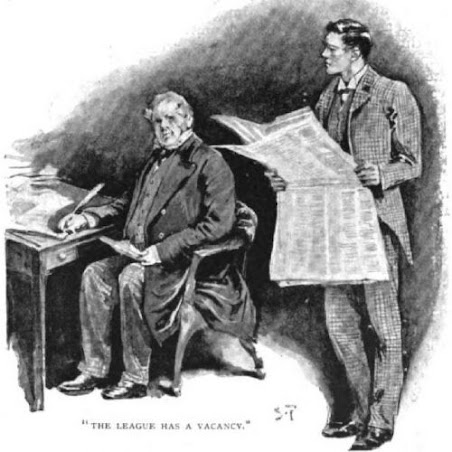Here’s a mystery for you: In the course explaining how he unraveled a particular riddles, why doesn’t Sherlock Holmes ever refer to his own parallel cases the way he does to those of other sleuths?
“As a rule,” he says in “The Red-headed League,” “when I have heard some slight indication of the course of events, I am able to guide myself by the thousands of other similar cases which occur to my memory.” (And Holmes does often refer to other cases from criminal history. He mentions Riga and St. Louis in the first chapter of The Sign of Four, for example.) “In the present instance, I am forced to admit that the facts are, to the best of my belief, unique.”
And yet, although the schemes in “The Stock-broker’s Clerk” and “The Three Garridebs” are inescapably similar to the Red-headed League scam, Holmes never mentions any of these cases in explaining how he arrived at the solution to another. Nor does the hiding of the pearls in “The Six Napoleons” call him to recall the blue carbuncle in the Christmas goose. In fact, he called the Napoleons case “absolutely original in the history of crime.”
And how about “The Norwood Builder” and The Valley of Fear? The former was written first, but the latter is set earlier. Both involve (spoiler alert) a faked death and a hidden room and yet Holmes never alludes to this.
Or did Holmes mention his own previous cases and Watson
leave that out of his accounts? After all, it is less of an achievement to solve
essentially the same problem two or three times.

I suspect it's the latter. Holmes didn't mind a similarity in cases; that made them easier to solve. Watson, however, had to sell stories to his publishers, and "this story is just like the one you read three months ago" is not a good way to sell future stories.
ReplyDeleteThanks!
DeleteRecognizing it as a parallel case may only be apparent in hindsight. And Holmes is loathe to theorize in advance of the facts. He may very well have been thinking, "Surely this culprit didn't...OMG! He did!"
ReplyDeleteA credible theory!
DeleteThis comment has been removed by a blog administrator.
ReplyDelete